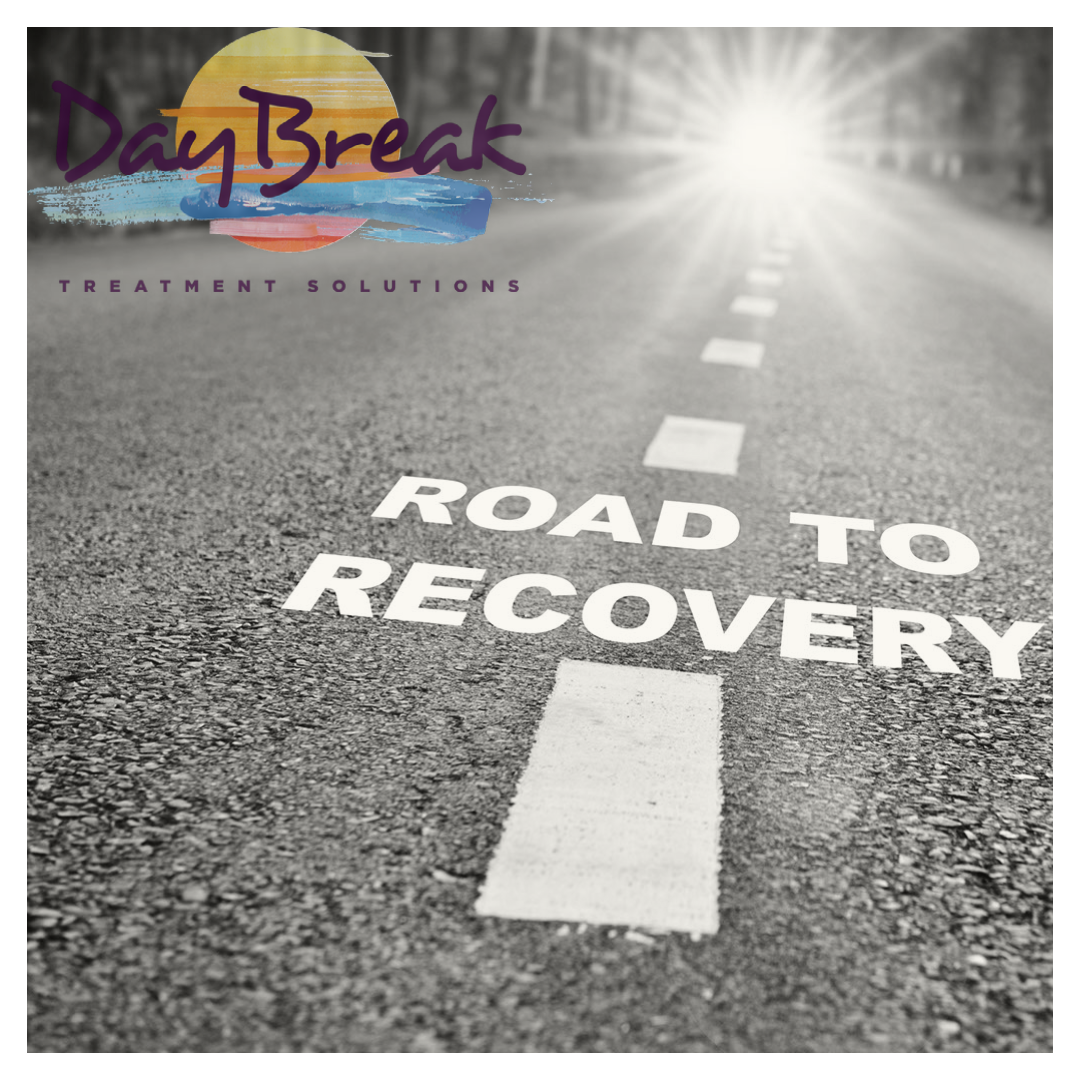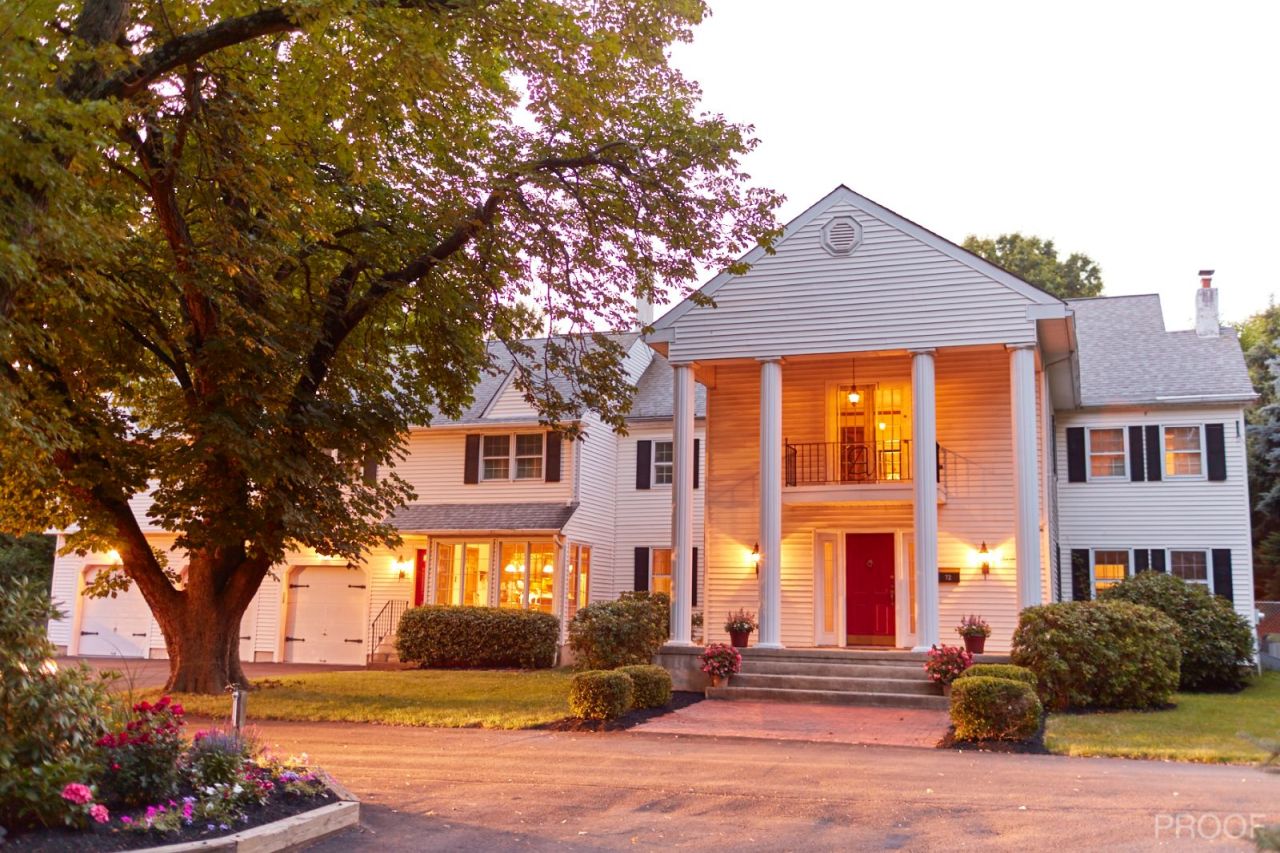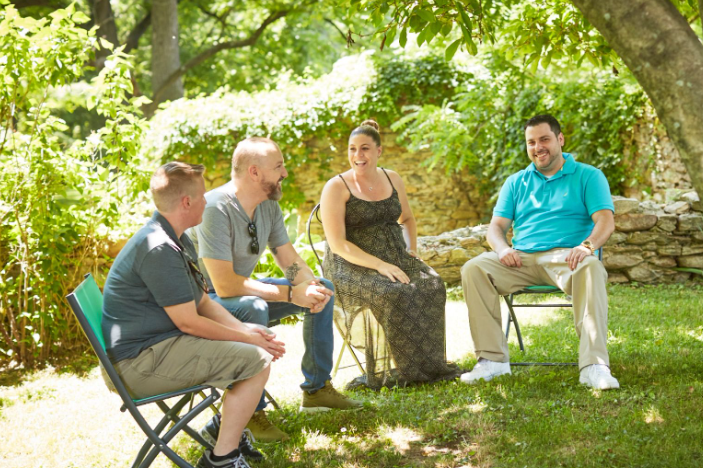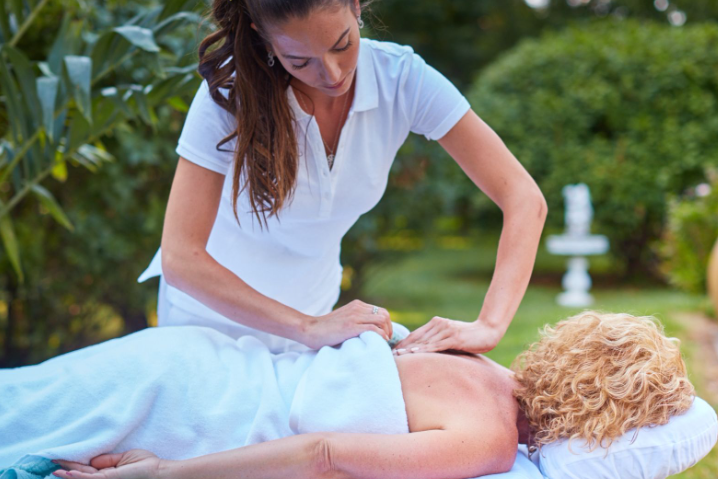Take A Tour
Alumni Testimonials
- Our Addiction Treatment Services Full Continuum of Care
- Drug Detox
- Drug Rehab
- Alcohol Detox
- Alcohol Rehab
- Inpatient Addiction Treatment
- Residential Drug Rehab
- Residential Alcohol Rehab
- Prescription Drug Rehab
- Outpatient Addiction Treatment
- IOP Rehab
- PHP Rehab
- Sober Living & Aftercare
- Alumni Support
- Why Choose DayBreak for Rehab in NJ?
Our Addiction Treatment Services Full Continuum of Care
Our treatment center is licensed through the State of Pennsylvania (DDAT), and we are also accredited through the Joint Commission. We have doctors and nurse practitioners on staff to keep you safe, and with a low 6 to 1 patient to therapist ratio, you will get all the personal attention and care you need with strong encouragement and healing strategies that support you as a whole person, not just another addiction. We treat:
- Drug addiction like Adderall addiction, benzodiazepine addiction, club drugs addiction, cocaine addiction,
- opioid and heroin addiction, huffing addiction, meth addiction, and prescription medication addiction.
- Alcohol addiction
- Dual diagnosis (addiction and co-occurring mental health issues like anxiety disorders, depression, bipolar disorder, panic disorder, post-traumatic stress disorder, and codependency)
Your comfort is our number one priority at the DayBreak wellness center. We have medical detox programs, luxurious inpatient residential facilities, and holistic treatments including spa services and massage to help you relax and be able to fully take in your treatments. In some programs we allow cell phones for you to be able to stay in contact with friends and family for additional support. With DayBreak, recovery is possible, and hope is on the horizon.
DayBreak treatment center offers the full continuum of care you will need to stop substance abuse, address the underlying causes of your addiction, and gain the tools you will need to live an addiction-free lifestyle after rehab. Levels of care offered include:
- Medication-assisted treatment (MAT) for detoxing
- Inpatient (residential) rehab for drug and alcohol abuse
- Outpatient treatments including our partial hospitalization program and intensive outpatient program
The first step to admission at DayBreak is speaking to one of our intake specialists to find out what level of care will work best for your unique situation. You can call our team at 844-447-3239 to speak with a counselor. They will be able to explain the process for you, and work alongside you to create a recovery plan that will begin the process.
If you are coming from out of town, you will fly into the Philadelphia International Airport, and we will make the necessary arrangements to have you picked up. When you first come to our rehab center once admitted, you will meet with a team of medical and psychological caregivers who will evaluate your level of addiction, and screen you for physical and mental health conditions. This will include an interview about your drug and alcohol use. This evaluation works to determine what types of care will be best for you. Some people may need a long-term stay in inpatient rehab for a more severe addiction or to treat co-occurring mental illnesses, while others may have a milder addiction and can begin outpatient rehab directly after detox is complete.
As soon as you are checked in, detox will begin. Most of our patients will benefit from a medically assisted detox, an integrated treatment that uses medications, alongside therapy and medical care to maintain the safety and comfort of each patient. After detox is complete, you will begin your integrated inpatient and outpatient rehab programs, working in a customized drug and alcohol treatment program to heal the root of your addiction and gain recovery tools that will last you a lifetime.
Drug Detox
The drug detox program at DayBreak is a 3- to 7-day integrated program that provides:
- 24-hour oversight and medical care from nurses, nurse practitioners and doctors to ensure you are safe, and to monitor the progress of your detox, making adjustments to treatments when necessary
- A comfortable and safe place to stay in our luxury detox center. You will stain a semi-private room with a maximum of one roommate as you go through treatment at DayBreak and will have access to luxury amenities like your own TV, spa service, yoga, and massage therapy, as well as a movie theater.
- The option to take medications to ease suffering as you detox. The most anxiety-inducing part of entering a detox program for many people is the thought of enduring pain and intense drug cravings, so at DayBreak we alleviate many of those uncomfortable symptoms using prescription medications, mitigating pain, restlessness, and anxiety, while keeping you safe from dangerous symptoms like seizures or high blood pressure.
- Therapy and counseling is provided right away in our detox programs so you can begin the process of healing the root causes of addiction, while dealing with emotional pain, anxiety, and stress that comes with detoxing
- Dual diagnosis treatments for co-occurring mental illness also begin during detox when needed, with targeted psychiatric medications and therapies given alongside addiction treatment
- We have both acute detox programs to help with severe withdrawal symptoms and medical concerns, and we also offer sub-acute detox programs that are more customizable, providing the correct amount of care to your individual needs, without overdoing it
Drug Rehab
A comprehensive rehabilitation plan is the best way to put substance abuse in your past. Detox is a short-term solution that will help you safely stop using drugs, but it is rehab that will get to the root of your addiction, creating long-term success by teaching strategies that will help you sustain your sobriety. At DayBreak, residential rehab programs last 30 to 90 days, and will reduce your risk of relapsing significantly, with a longer stay recommended for people quitting opioid drugs or benzodiazepines, and those with mental health issues alongside their addiction.
During inpatient rehab you will have therapy, addiction education, counseling, and 24-hour medical care and emotional support from our experienced and supportive staff members. We offer life skills training, career support and case management for all of our clients as well, setting you up to live an independent life once rehab is complete. Our inpatient program has been designed to support you for as long as you need it and will greatly reduce your risk of relapsing.
Once you have completed your time in residential care, we offer outpatient options that will incorporate your recovery skills into real-life situations. You may wish to move into one of our sober living homes while in outpatient treatment, or you can live at home if you have somewhere stable and supportive to live. Through the integrated continuum of care we provide, you can gain the coping skills and stress management tools to stay away from drugs long-term, while healing the deep-seated emotional wounds and trauma that are correlated to addiction.
Alcohol Detox
Alcohol addiction begins when a person abuses alcohol, then becomes physically and psychologically dependent on drinking. Alcohol abuse is characterized by heavy drinking (2 drinks a day, or 14 a week for men, and 1 drink a day, or 7 a week for women), or binge drinking (approximately four to five drinks in a two-hour period). Addiction is diagnosed when your pattern of drinking becomes problematic in your life, interfering in regular activities, and when you experience a physical or psychological compulsion to drink, even when you want to stop.
Alcohol addiction can be mild or severe. Some signs of alcoholism include:
- Making drinking and recovery from hangovers a priority over other responsibilities and interests
- Craving alcohol or experiencing withdrawal symptoms without it
- Uncontrollable irritability and mood swings
- Drinking alone, drinking in the morning, or drinking in secret
- Being unable to quit drinking or to control how much you drink once you get started
- Continuing to use alcohol even when it causes serious problems with your relationships, health, and finances
If you are experiencing these issues and would like to quit drinking, it is important to note that attempting to detox at home on your own is never recommended when it comes to alcohol. The withdrawal symptoms you experience without medical care can suddenly escalate out of control, causing you to feel unable to handle it and begin drinking again, or becoming a medical emergency that requires hospitalization.
Mild alcohol withdrawal symptoms include irritability, anxiety, mood swings, hand tremors, sweating, confusion, insomnia, nightmares, headaches and an increased heart rate. You will also experience strong cravings for alcohol, and feelings of restlessness and distress.
If your withdrawal symptoms progress further, you may enter dangerous territory, with the possibility of experiencing delirium tremens (also known as the DTs). Symptoms of the DTs include:
- High fever that can result in extreme dehydration and brain damage if untreated
- Confusion and agitation
- Visual hallucinations (seeing things that are not there), audio hallucinations (hearing things that are not there), and tactile hallucinations (feeling like something is crawling under your skin when nothing is there)
- Seizures occur in approximately 10% to 15% of people who try and detox outside of a medical treatment center
- Death occurs in 5% to 15% of people who are not treated when the DTs set in
There is a greater risk of developing delirium tremens in people who have tried detoxing before and have relapsed. It is also a greater risk if you have been drinking heavily, binge drinking, or drinking for a long time, or if you have other health issues.
Daybreak’s medical detox clinic is staffed by medical professionals (nurses, nurse practitioners, and a physician) who are experienced in addictions and detoxification procedures, and they will be there to keep you safe and prevent serious side effects from happening as your body removes the toxins from your system. They will also make sure you stay hydrated and are provided with prescription medications that will mitigate alcohol cravings and stop seizures from happening, while keeping you comfortable so you do not suffer as you detox.
Therapy, counseling, psychiatric treatment, spa treatments, massage, salon services and more are provided during this phase, as we believe that treating you as a whole person, not just an addiction, is the best way to help you recover as quickly as possible from your substance use disorder. Your comfort is important.
The average person’s alcohol detox timeline is as follows:
- 6-12 hours after your last drink – you may begin to feel anxious, with insomnia and nightmares, headaches, nausea, and stomach pain
- 12 to 48 hours after your last drink – your symptoms will grow stronger, and people with more serious withdrawal may have seizures or begin hallucinating, feeling more and more agitated
- 48 to 72 hours after your last drink – this is usually when withdrawal symptoms peak, and when signs of delirium tremens may begin to show up. You will likely also have rapid heart rate, confusion, fever, and hallucinations. This is the most dangerous period, and the time when medical intervention is most needed.
- After the peak of your withdrawal – once you have experienced the peak of your withdrawal, you will begin to feel a little bit better each day. The worst of the symptoms will last for around ten days, and then you will move into your alcohol rehab program.
Alcohol Rehab
Once alcohol detox is over, it is recommended to stay inside our inpatient rehab facility for a minimum of 30 days, with 60- and 90-day programs available. Some of the reasons people develop alcohol addictions include:
- Genetic factors
- Family and environment
- Mental health
- History of drinking
- Social factors
- Personality factors
At DayBreak, we will work alongside you through customized therapies and treatments that will address the physical aspects of addiction, along with these social, emotional, and psychological pieces of the puzzle, healing the underlying causes of addiction and providing the relapse prevention skills and recovery tools you will need to live a healthier, alcohol-free life.
Inpatient Addiction Treatment
Inpatient drug and alcohol addiction treatment is one part of the whole recovery process for the majority of people who go to rehab. It involves “checking in” to our luxury rehab clinic for a minimum of 30 days. Benefits of inpatient rehab include:
- A 100% sober environment where you cannot access drugs or alcohol
- A safe place to relax, heal, and recover, with full medical care to ensure you are healthy
- Time and space away from life’s stresses to focus on yourself and your own healing
- Up to 90 days in a structured environment where you can learn new healthy habits and routines
- Fresh, nutritious food provided to you three times a day, with plenty of fruits and vegetables
- A variety of therapy options and treatments that will help you in different ways
- Family and relationship counseling to help rebuild damaged relationships
- Dual diagnosis care to address co-occurring mental health issues and trauma
- Recreational activities and beautiful low-key areas to relax and enjoy with peers or on your own
- Introduction to sober communities and peer groups for long-term support
- Life skills programs, relapse prevention programs, and case management services to set you up for success in independent living
Residential Drug Rehab
Your stay in residential drug rehab will provide you with the sober and drug-free environment you need to be able to recover from your drug use, healing your body, mind, and spirit through a combination of clinical care, behavioral therapy and other evidence-based treatments, and holistic treatments. Residential treatment is our most attentive and effective means of dealing with addiction, and if you have a severe substance use disorder, it is best to stay for a longer period of time. 30 days is the minimum, but if you have a dual diagnosis, are quitting opioid drugs or benzodiazepines, or are still feeling the effects of your withdrawal, a 60- or 90-day stay (or longer) in rehab is recommended.
Residential Alcohol Rehab
Residential rehab is almost always recommended for people recovering from an alcohol use disorder (AUD). Alcohol is a substance that can cause severe withdrawal symptoms that can cause damage to the body, and may require longer-term care and supervision than some other substances. It is also a drug that is legal and widely available at any supermarket, liquor store, restaurant and gas station, and there are bars and pubs in nearly every town across the country. Drinking alcohol is also socially acceptable and even encouraged in some cases, so avoiding relapse can be particularly difficult.
For these reasons, a minimum stay of 30 days in inpatient residential rehab after your medical detox is recommended when quitting drinking. Inside a sober rehab facility, you will not be tempted to drink. Your sobriety will be positively reinforced, your mental and emotional pain will be treated, and you will learn to say “no thank you” to alcohol, while healing the underlying issues that caused your alcoholism in the first place.
Relapse prevention skills, therapy, case management, and holistic treatments will get your mental and physical health back on track, and you will gain the coping tools and recovery skills, as well as connections to peer support like Alcoholics Anonymous that you will need to stay away from alcohol once you return to your regular life.
Prescription Drug Rehab
Prescription drug addiction encompasses a wide range of addictions, including addictions to opioid painkiller drugs like Oxycodone, Fentanyl, Codeine, and Percocet, addictions to barbiturate and benzodiazepine drugs like Xanax, Luminal, Ativan, and Klonopin, and stimulants like Adderall and Ritalin. Abuse of prescription drugs is common, and if you misuse your prescription or take other peoples’ prescription medication, you will soon gain a tolerance that will become a physical dependence, leading to addiction.
At DayBreak, our prescription drug rehab programs include medication-assisted detox that is customized to your unique addiction, followed by inpatient and outpatient rehab that will address your drug abuse through a comprehensive program that will help you address the underlying psychological, emotional, and social causes of addiction along with physical health care and life-skills programs. In residential rehab you will live in a gender-specific home in a semi-private room, with one-on-one and group therapy, holistic treatments like yoga and massage therapy, and dual diagnosis treatments if appropriate. In outpatient rehab you will have a flexible program that will allow you to heal from your addiction at your own pace.
Outpatient Addiction Treatment
Once you have completed your inpatient rehabilitation and are ready to transition back to your regular life, start working again, get back to your loved ones, and living your life, you may enter an outpatient rehabilitation program. At DayBreak we have a variety of outpatient programs that can be customized to fit your life, schedule, and preferences, including an intensive outpatient program (IOP) and a partial hospitalization program (PHP). You may prefer to stay in a sober living home during outpatient rehab, or you can live at home with family if they are ready and able to be your strong sober support system.
Outpatient rehab includes some or all of the therapies and treatments that inpatient rehab offers, but only a set number of hours per week, instead of a full 24-hour immersion into the sober environment. It is tailored to your individual addiction and lifestyle, with medical visits, individual and group therapy, educational programs, and connections to sober communities and peer support groups outside of the facility as well. With outpatient rehab, you will have to take more responsibility for yourself and your actions, using the recovery skills you are learning in real-time as you go about your day.
Some benefits to outpatient rehab programs include:
- Making new, sober friends and gaining a strong sober community of peers as you learn to have fun and socialize without using drugs and alcohol
- Strong support as you try out your sobriety in real situations throughout your day-to-day life, with immediate access to help when you run into triggers or the temptation to relapse
- The freedom to move between levels of care if you find you need more or less support as time goes on
- The ability to live at home with friends and family, while providing them the relief in knowing they are not expected to be your full-time support and caregiving team
- Access to a network of comfortable, safe, sober-living home recovery house options that you can move into if you find you need more rules and structure during your first few months outside of inpatient rehab
There is no end date to outpatient treatment. As the months and years go by, you may cut back your treatments, but you will still always have the stable support we can offer, with the option of booking doctor or therapy appointments, or dropping in to an Alcoholics Anonymous or Narcotics Anonymous meeting at any time.
Outpatient rehab is not just there for people who have gone through an inpatient rehab. Those who have a milder addiction, and those who simply cannot leave home for a full 30 to 90 days may wish to enter an outpatient rehab program directly after detox. This is not the right move for every patient, but for some it is an excellent way to get the help you need without negatively affecting your job, family, or school performance. During your intake at DayBreak we will be able to help you decide which type of program will be best for you.
IOP Rehab
Our intensive outpatient program (IOP) is a type of outpatient rehab that begins with groups and one-on-one therapy five days per week, for three hours each day. This will taper down to three days a week as time goes on. The IOP is a customized program that can fit around your life, so you can continue with your childcare, work, or school responsibilities, incorporating your recovery skills into your every day schedule as you receive full, consistent support from our professionals and your peers.
IOP sessions at DayBreak are provided in these time blocks:
- Morning – 8:30am to 11:30am Monday through Saturday
- Afternoon – noon to 3:00pm Monday through Friday
- Evenings – 6:00pm to 9:00pm Monday through Friday
This program not only provides therapy during these times, but you will also have mental health care through psychologist and psychiatrist appointments, doctors’ visits, counseling, employment support, and 12-step program facilitation. There is random drug testing to ensure your program is providing you with enough care for your needs.
You are a good candidate for an intensive outpatient program if:
- your mental health is under control
- you are not suffering from withdrawal symptoms
- you have a strong support network at home or with friends
- you have a sober-friendly place to live
- you are motivated and able to get yourself to and from all appointments and groups
With an IOP, you will learn to be responsible for your own actions, staying away from substances on your own as you maintain a work-life balance with semi-structured living in sober living housing or at home.
PHP Rehab
The partial hospitalization program at Daybreak is a short-term, three-to-five-week program on average that takes place after residential rehab or inpatient detox. Patients will live and sleep at home or in a sober living residence, and come in for group therapy, doctors’ visits, dual diagnosis treatments and other addiction treatment for full days six days a week, from 8:30am to 3:00pm.
This is a comprehensive program that does not allow cell phones. You will have full, structured days with evidence-based treatments combined with holistic and alternative treatments like exercise therapy, massage therapy, mindfulness, nutritional education, and yoga classes for a whole-person healing process. The PHP is a good place to start after inpatient care, especially if you are still experiencing mild cravings or withdrawal symptoms or if you have a high risk of relapse. Once PHP is complete, patients usually move into an IOP.
Sober Living & Aftercare
Sober housing is an excellent option for many people in treatment, as their home environments may not be conducive to early recovery efforts. A sober living home is sometimes called a halfway house. This is a place you can move into, usually with one or more roommates and an overseer. It is a 100% sober environment, with strict rules that must be followed including drug testing, curfews, and rules about house conduct, what you do with your time, and on-time fee payment. Other common house rules in sober homes include:
- No overnight guests
- Participating in household chores
- No violence
- Mandatory participation in recovery programs
The people and the environment that surround you after rehab can play a big part in whether you remain in recovery, especially in the early days. Daybreak has connections to comfortable, upscale, affordable, and safe gender-separated sober homes that you can live in while you continue your outpatient treatments. With a sober home, you can go to work or school, attend an IOP or other outpatient program, and then return home to a place where you will have full support in facing the challenges and temptations that everyday life brings.
Alumni Support
Adjusting to sober life outside of rehab can be difficult, and it is important to have continued support and connections to sober peers in both formal and informal settings.
You may wish to join:
- Alcoholics anonymous
- Narcotics anonymous
- SMART recovery groups
- Alumni groups
- A long-term outpatient program
At DayBreak, we will keep you connected to peer groups, sober housing, and the local sober community as you move on from our inpatient and partial hospitalization programs. With these connections, along with a relapse prevention plan in place, you will have plenty of places to turn when you are faced with boredom, stress, or triggers that make you want to abuse substances again. You can re-learn how to have fun and live a full life without the use of drugs and alcohol. A strong connection to a sober community will give you all the support you need.
Why Choose DayBreak for Rehab in NJ?
Daybreak treatment center in New Jersey offers therapies like:
- Group therapy
- One-on-one therapy
- Family therapy
- Didactic therapy
- Psychoeducational therapy
- Music therapy
- Trauma-focused therapy
- Cognitive behavioral therapy
- Rational emotive behavior therapy
There are also options for treatment including holistic treatments and therapies, EMDR, medication management, motivational interviewing, relapse prevention planning, and integration into 12-step programs and SMART recovery programs.
We also offer dual diagnosis for patients who have a substance use disorder alongside a mental health issue. Common co-occurring mental illnesses include:
- Anxiety disorders
- Depression
- Mood disorders
- Schizophrenia
- Bipolar disorder
- Post-traumatic stress disorder
Our professional, accredited, and caring team can help you stop substance abuse, get to the root of your addiction, and heal your body, your mind, and your spirit through a tailored treatment plan that will lead you through the entire continuum of care. We accept most forms of private insurance and can offer a quote if you are paying out-of-pocket. If you are taking time off work for treatment, our team will help you fill out your FMLA paperwork. Call us today to speak to an intake counselor to learn more and to verify your insurance coverage. If approved, you may be admitted immediately.









